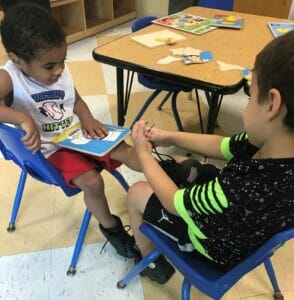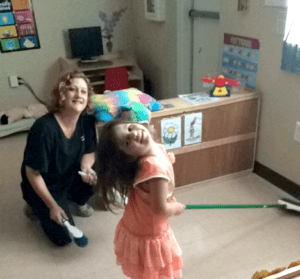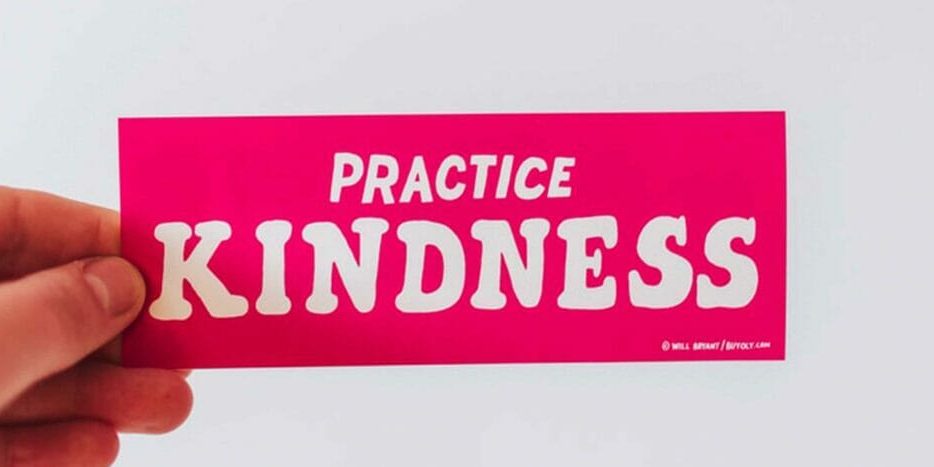Kindness – defined as the quality of being friendly, generous, and considerate.
Kindness needs to be part of our family culture, and it begins by modeling the concept to our children at an early age and continuing throughout our life span.
Believe it or not, kindness is observed by children at an early age. Children see acts of kindness in their homes, childcare programs, and their environment. At a very young age they are hearing adult conversations and they are noticing the actions taken toward others. 

Young children might not understand the words adults use, but can pick up the emotion behind words and actions. They sense when adults in their lives are not kind to each other, and often do not know how to process these feelings. Adults should model kindness every day.
It is so important to teach kindness – despite our differences everyone should be kind to one another! Take just a few moments to notice the wonderful world we live in. There is so much more we all have in common. By bringing children’s attention to being kind to each other despite our differences will create a kinder world.
Different cultures approach situations in many different ways. Respect and accept the uniqueness of others. Every child can be taught to notice the words they speak and use words that are friendly, generous, and considerate.


Conversations in the car are a great opportunity to discuss kindness! I love car conversations, there are less distractions and are the best opportunity for meaningful discussions. I’d suggest asking your child for help – empower your child to think through the situation and help you come up with a solution! Make up or discuss a situation you witnessed where someone was not kind to another person. Ask your child what could have been done instead. Listen to their words, be kind about the ideas they suggest, and work out an appropriate solution together.
For teachers, reinforce kindness during circle time. Bring in a teddy bear and ask the children to be kind to the bear. First show them how you would be kind to the bear, to model kindness. Pass the teddy bear around the circle to watch their actions and positively reinforce the children’s acts of kindness. If any children are hesitant, it may be because of the child’s feelings that day or they simply don’t understand the concept. In those instances, give the child a choice, such as “would you like to hug the teddy bear or tell him how you like his brown ears?” Most times a child will choose one of your options, and the act of kindness begins to be a part of a child’s life!
Today it is important to teach children and youth the impact of unkind words that their friends might use when they are together.


Take time to teach them unkind words do hurt. Positively reinforce for them not to join into friends’ unkind actions and gestures. Let them know most times other youth in the group will notice when one person is not going along with their peers and this can change behavior.
Each and every person matters, no matter who they might be and they deserve to be treated with kindness.
We all have a part to make this world a kinder place to reside in and it can be accomplished by each of us being aware of our actions and modelling kindness to our children.
“Dr. Day Care” is Mary Ann Shallcross Smith, Ed.D., CEO/President of Child Care Consultants & Facilities Management, Dr. Day Care Learning Center, Kids Klub, and Therapeutic Child Care Services. We educate infant, toddler, preschool, kindergarten, and school-age/camp children.
“Dr. Day Care” can be reached anytime by calling 401-723-2277 x 222 or by e-mail at drdaycare@drdaycare.com. For additional Parent Resources, such as informational videos, visit our website at: www.drdaycare.com. Mary Ann also recently wrote a children’s book about educational opportunities that you can read to your child: Edgar Graduates: www.drdaycare.com/about/books

